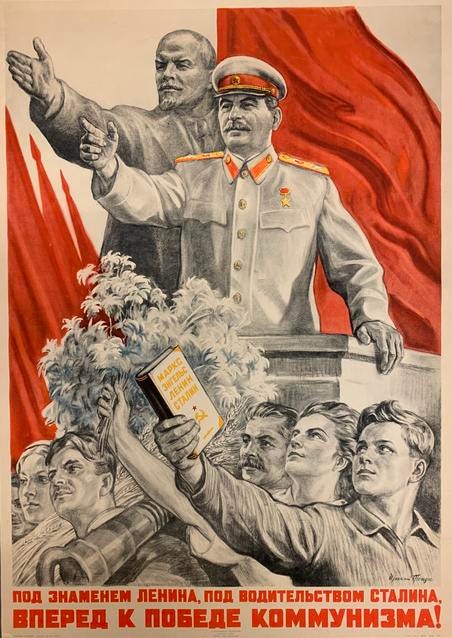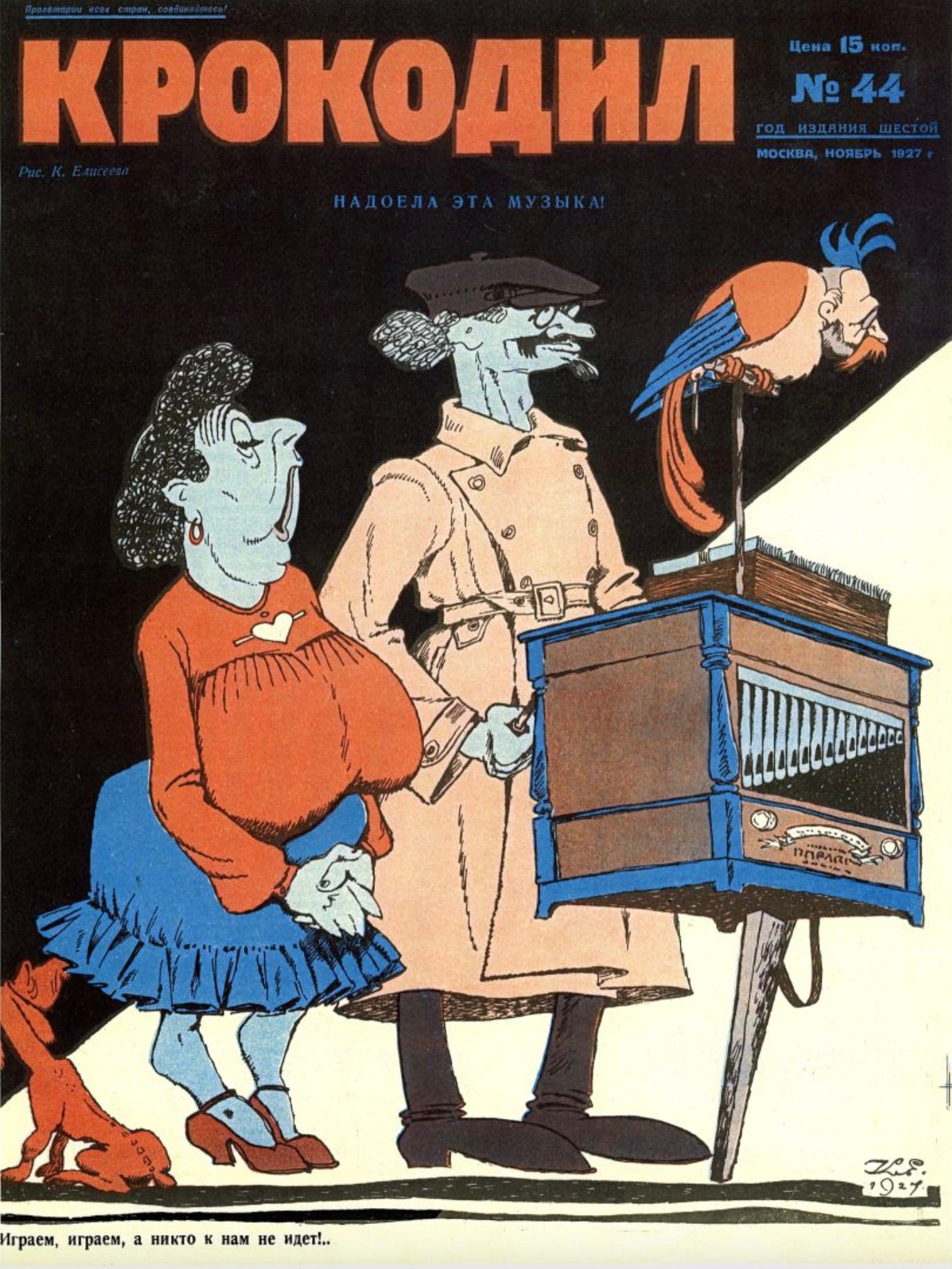In 1927 Stalin’s secretary Bazhanov gave young students of the Institute for Red Professors (= a career accelerator for the high Bolshevik priesthood) a sound advice. Do you want a promotion? - he asked. - Do you want a career? Then write a book on the Thought and Theory of Joseph Stalin. In two years, you will be in the Central Committee of the Party.
Reaction?
He was laughed at. Nobody took the advice seriously, it was seen as a total joke. Like yes, this ethnic minority guy with a funny accent is sort of a Party leader, but saying he is a big “intellectual” with a thought and theory of his own is ridiculous. You must be joking. Everyone sneered on this advice
Everyone but one person
One student, took it very seriously, and soon made a dissertation proposal:
“Lenin and Stalin: philosophical successors of Marx and Engels”
Naturally, this proposal was rejected by the academic committee. Like what the hell are you even talking about? Lenin did not publish much philosophical work in the first place, and Stalin did not write anything on philosophy at all. Even Lenin is not much of a philosopher, and Stalin is an absolute zero in this particular field. So, there is nothing to write a dissertation?
The disgruntled student appealed to the Central Committee of the Party (that is to comrade Stalin) and soon received a mysterious response, allowing for multiple interpretations. It, perhaps, can be best translated into English as:
It is an interesting, but irrelevant topic
Or, it could be also interpreted as:
It is an interesting, but untimely topic
The nature of the specific adjective used by Stalin allowed for either interpretation1. It was purposefully and deliberately ambiguous.
The dissertation committee of the Institute naturally read it as the entire case being dismissed and, of course, dismissed it.
Looks like the student in question lost his case? Not really. At least, not in the long run
In 1931, he graduates from the Institute. Next year, his gets appointed the head of the same Institute he has graduated from. Henceforth, his career goes only up and up. New appointments. New promotions. New accolades. He becomes one of the most important and most decorated high priests of the Marxist theory in the Soviet Union.
So, when Mao Zedong asked Stalin to send him a trusted Marxist theoretician to review and correct the views of the Chinese Communist Party, Stalin dispatched the same very guy as his ambassador to China. Here you see him, a plump guy in eyeglasses, standing to the right of Mao Zedong. Looks like Stalin embraced his message in the end.
So why did Stalin dismissed his case in the first place?
(lowkey agreeing that he is not a big thinker, and does not have his thought and theory)
And the answer would be:
Because it was too early
The thing with presenting Stalin as a theoretical successor of Marx, Engels and Lenin was not about selling his an academic researcher.
It was of course part of the deification effort
Marx, Engels, Lenin were not ordinary humans, nor were they merely philosophers. They were first and foremost deities, sacred founders of the established creed. They were gods. Now one important thing to understand about them, that they were dead gods.
Their lifetime on the Earth was over, they could not speak on their own behalf anymore. Like, they were still the source of the ultimate political and moral authority, yet they needed someone else to convey and interpret their teaching. They needed someone living to represent them in this world.
Now Joseph Stalin was the only living person in this list. And, being put in the same category with the former three (while being alive), made him what was effectively a living god. Something better and more powerful than just a priest. That was the agenda the young sycophant was trying to push through already in the late 1920s.
The future would show that Stalin fully agreed with this agenda, and was going to implement all of it, at the right moment. Yet, in 1927 it was too early.
Dead god, living god
Notice that by 1927, Stalin has defeated all the oppositionaries, all his enemies, and all of the internal rivals in the Communist Party. His competitors for power Trotsky, Zinoviev and Kamenev were expelled from the Party and sent into exile, their followers purged from the party ranks.
Left to right: Zinoviev, Trotsky, Kamenev. Ridiculous, pathetic enemies, as of 1927
As of 1927, Stalin remained the one and only, uncontested leader of the Bolsheviks.
Still, too early
Keep reading with a 7-day free trial
Subscribe to kamilkazani to keep reading this post and get 7 days of free access to the full post archives.







